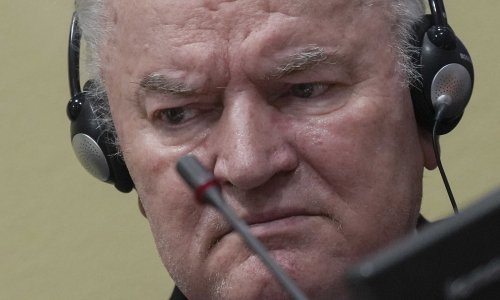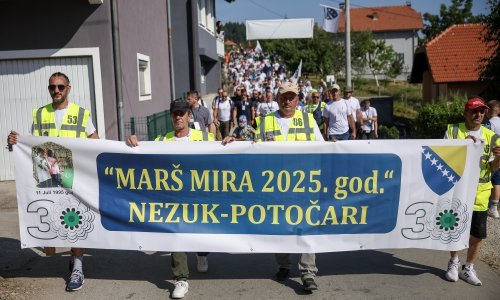The president of the International Criminal Tribunal for the former Yugoslavia (ICTY), Patrick Robinson, in Belgrade on Tuesday said that mechanisms will be kept in place to try ICTY fugitives Ratko Mladic and Goran Hadzic if they are not apprehended by the time the Hague-based tribunal closes down.
Reiterating that the UN Security Council has set up mechanisms for the continuation of the work of the ICTY even after its official mandate expires, Robinson told a news conference that he shared the concern of the ICTY chief prosecutor Serge Brammertz that Mladic and Hadzic were still at large and hope that they would be arrested and brought to justice.
Asked if in his opinion the European Union should exert additional pressure on Serbia to locate and arrest Mladic and Hodzic, Robinson said the issue of Serbia's cooperation with the Hague tribunal should be directed at the prosecutor Brammertz and his office.
It is of critical importance for peace and the rule of law to make national justice systems in former Yugoslav countries able to prosecute war crimes cases, said Robinson, launching an EU-funded project aimed at helping national judiciaries in the Balkan region deal with war crimes cases.
Robinson says "the completion of its work, the tribunal's work, lies in the continuation of that work by national judiciaries."
Serbian war crimes prosecutor Vladimir Vukcevic said Serbia, more than anyone, is interested in seeing Mladic and Hadzic be brought to justice. "We are exposed to political, economic and moral condemnations because of two men. We did not deserve this which is why we want to see them in the Hague as soon as possible," Vukcevic said.
The EU-funded project aimed at helping national judiciaries in the Balkan region deal with war crimes cases. is worth EUR 4 million.
The tribunal was set up in 1993 by the U.N. Security Council.

































